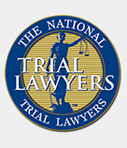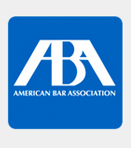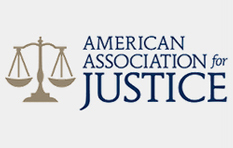
Mediation can feel like a never-ending process. It’s frustrating and stressful trying to negotiate a settlement to resolve a personal injury case. Once you reach an agreement, you can breathe a sigh of relief. You’re eager to receive your settlement check and move on with your life.
However, there are some steps you must go through before getting your money. Before your attorney prints the final check, you must understand how settlements work and what needs to happen.
Possible Results of Mediation
When you participate in mediation, three possible outcomes can occur:
- You reach a settlement.
- You don’t reach a settlement.
- You continue negotiating when mediation ends.
If mediation is successful and the other party agrees to your proposed settlement or makes a counteroffer you accept, the mediator will draft a settlement agreement. You must sign it and, if mediation is court-ordered, file it with the court. When the judge signs off on it, your arrangement becomes legally binding. No one can change their mind and return to the negotiating table to discuss a different settlement amount.
You must understand the finality of a signed mediation agreement. If you have severe injuries, negotiating an adequate settlement is crucial. You must account for the cost of ongoing medical treatment or long-term care. Once you sign on the dotted line, asking for more money later is unlikely to be successful.
Common Components of a Settlement Agreement
Every settlement is unique. The components of your agreement will depend on the circumstances. However, settlement agreements typically include these stipulations:
- The other party agrees to the settlement amount, which their insurance carrier will pay.
- You agree not to take additional action against the other party for this legal matter.
- You won’t file future claims related to the injury or accident.
Court Involvement When the Other Party Violates the Agreement
A settlement agreement from a court-ordered mediation is legally binding and enforceable by the court. If the other party attempts to get out of paying what they agreed to or fulfilling their obligations per the contract, a judge can step in to force the defendant to comply. They can also impose sanctions for violating the terms of the settlement agreement.
Common sanctions include:
- Covering the costs of mediation, whether there were one or multiple sessions
- Paying attorneys’ and legal fees
- Paying court costs
How Long After Mediation Will I Get My Money?
Plaintiffs often receive their settlement check four to six weeks after signing the settlement agreement. The timeframe might be longer if the size or complexity of the case is significant.
When the check comes in the mail, it doesn’t mean you get to walk away with the money. The insurance company will send the check to your lawyer for disbursement.
Your lawyer must settle what you owe before releasing your check. They will use your settlement to cover their legal fees, unpaid medical bills, case-related costs, and other expenses. The remaining funds will be yours to keep.
How to Handle a Failed Mediation
 Sometimes, more than one mediation session is necessary to reach an agreement. If the first session fails, the time it takes to schedule the next session will depend on numerous elements, including:
Sometimes, more than one mediation session is necessary to reach an agreement. If the first session fails, the time it takes to schedule the next session will depend on numerous elements, including:
- The facts of the case – The insurance carrier might decide they need to obtain physician testimony after the first mediation. The doctor must discuss your injury, symptoms, and other aspects of the accident. They must describe how the injury affects your life and physical or mental functioning. Nailing down a date to take the physician’s testimony can take time, extending the period between the first and second mediation sessions.
- Significant settlement – Getting back to mediation might take a while if you propose a high settlement amount to resolve the case. Insurance companies want to avoid payouts to save money. The higher the settlement, the more likely the insurer will require additional time to investigate. They want to find evidence to justify a lower number or refuse to settle.
An unsuccessful mediation doesn’t mean you’re out of options. Mediation is one of many stages in litigation. If it fails, you can continue working on your lawsuit and prepare for the upcoming trial.
Fight for the Compensation You Deserve
Mediation can be a long, drawn-out process with many intense conversations and negotiations. Settling relieves the burden of additional legal expenses and trial proceedings. However, a mediation settlement isn’t suited to everyone’s needs.
The Bruner Law Firm will guide you during your personal injury case and determine the most beneficial strategies. We have represented injured Floridians since 1992 and are ready to help you hold the negligent party liable for your injuries.
Call our legal team at (850) 243-2222 for a free consultation today if you sustained injuries in an accident someone else caused.
Related Posts:







